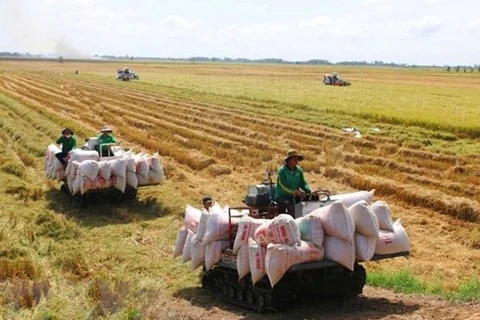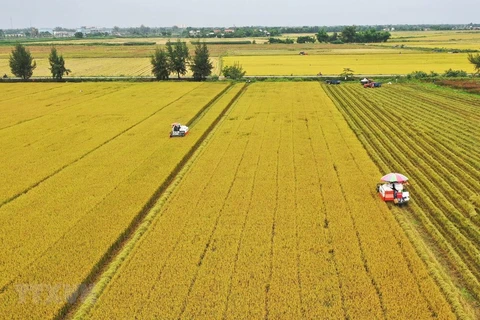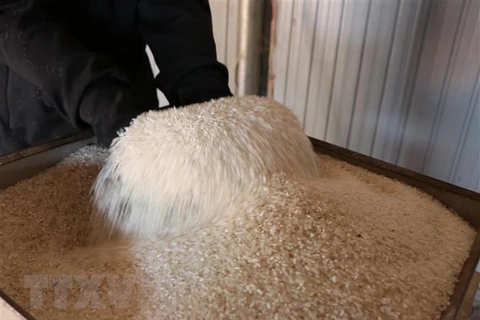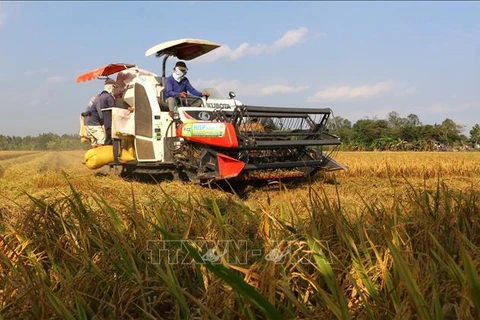Hau Giang (VNA) – The Ministry of Agriculture and Rural Development in collaboration with the Mekong Delta province of Hau Giang on December 12 held a ceremony to launch a project on developing 1 million hectares of high-quality, low-emission rice linked with green growth in the Mekong Delta region by 2030.
The project aims to increase values, sustainably develop the country’s rice industry, increase incomes for rice farmers, protect the environment, and contribute to realise Vietnam’s environment commitment.
Under the project, greenhouse gas emissions from rice farming is expected by reduce by more than 10% and low-emission, high-quality rice will account for over 20% of the total for export in the entire specialised rice farming region.
Speaking at the event, Minister of Agriculture and Rural Development Le Minh Hoan highlighted that throughout the implementation of the project, there will be experimental trials of new policies, including paying carbon credits based on performance, focusing on low-emission production tied to green growth, and developing an agricultural economy with a circular approach.
At the 26th United Nations Climate Change Conference (COP26) in the UK in 2021, Vietnam committed to cutting emissions to net zero by 2050, which poses challenges and difficulties for Vietnam’s rice industry and requires it to change, Hoan said.
Carolyn Turk, Country Director of the World Bank in Vietnam, said that the implementation of the project in the Mekong Delta region – Vietnam’s rice bowl will boost the country’s rice production.
She said she believes that the project will effectively support Vietnamese farmers and agriculture, adding the application of science and technology not only helps reduce greenhouse gas emissions but also increases productivity, reduces input costs and overall brings a 30% increase in profits for farmers, thus helping Vietnam achieve goals in protecting the environment and improving farmers' lives as well as food security./.
























